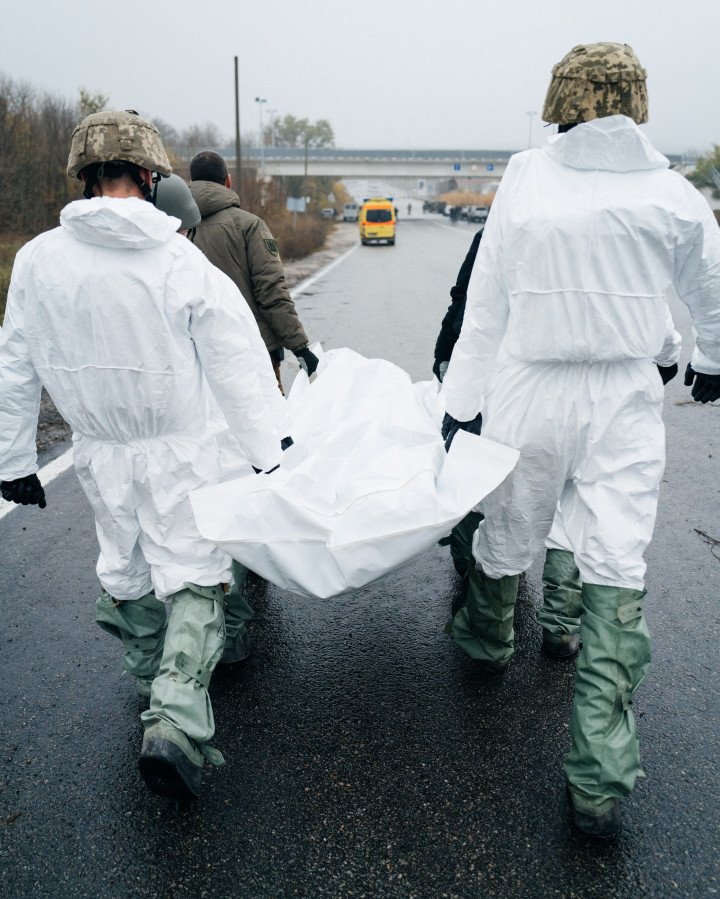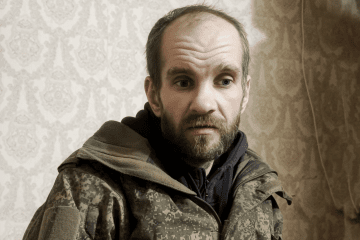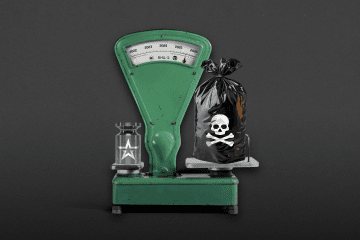- Category
- War in Ukraine
Fighting Impunity, Russia’s Weapon Of War. Another Landmark Case.
-9950ab6612c5b12e0496de81e1541471.jpg)
Russia continues to commit heinous war crimes and impunity has left the Kremlin feeling “untouchable”. Today, we highlight another landmark case in international courts, and the pursuit of justice and accountability for crimes of aggression, in Ukraine.
Since Russia's full-scale invasion of Ukraine on 24 February 2022, Ukraine has documented more than 122,000 war crimes. President Zelenskyy's peace plan emphasizes the need for accountability: “Those crimes must be punished.”
This demand for justice is underscored by the International Criminal Court's (ICC) landmark case in March 2024, where two high-ranking Russian military commanders were held responsible for their heinous war crimes and grave human rights violations.
Throughout the full-scale invasion, Russia has displayed blatant disregard for human rights, flaunting and publicizing its war crimes. For example, in March 2023, an unarmed Ukrainian soldier was fatally shot after shouting "Slava Ukraini" – "Glory to Ukraine," in a video that shocked the world.
Achieving legal accountability during an active war is particularly challenging. It's a complex but crucial process, involving gathering, verifying, and corroborating evidence.
Until now, Russia has been able to commit war crimes with little accountability. However, international courts and countries globally are shifting this narrative. This article analyzes Russia's use of impunity as a weapon of war and the legal challenges of convicting the aggressors. Justice may take time, but it will prevail.
Another Successful Case in International Criminal Courts
In March 2024, the ICC issued warrants for two high-ranking Russian military commanders: Sergei Kobylash and Viktor Sokolov. They are wanted for deliberately targeting civilians, causing widespread civilian suffering, destroying essential infrastructure, and committing inhumane acts that constitute crimes against humanity.
“Every Russian commander who orders strikes against Ukrainian civilians and critical infrastructure must know that justice will be served. Every perpetrator of such crimes must know that they will be held accountable,” Zelenskyy wrote on X.
I welcome the International Criminal Court's decision to issue arrest warrants for Russia's Long-Range Aviation and Black Sea Fleet commanders, who are accused of war crimes and crimes against humanity committed during Russia's bombing campaign against Ukrainian civilians and…
— Volodymyr Zelenskyy / Володимир Зеленський (@ZelenskyyUa) March 5, 2024
Ukrainian Prosecutor General Andriy Kostin welcomed the warrants, calling them “another milestone in ensuring justice for all victims and survivors of this war.”
Ukraine has launched investigations into more than 122,000 suspected war crimes cases, identifying 511 perpetrators and securing 80 convictions in Ukrainian courts. The types of war crimes investigated include:
Indiscriminate killings;
Torture;
Sexual violence;
Inhumane treatment or imprisonment;
Damage or destruction of religious buildings and cultural objects;
Forcing citizens to take part in hostilities against their own state;
The abduction of an estimated 20,000 Ukrainian children, a scale not seen on European soil since World War II.
These indictments mark the second time the ICC has publicly announced arrest warrants in connection with Russia's war crimes in Ukraine. In March 2023, arrest warrants were issued for President Putin and Maria Lvova-Belova for the unlawful deportation of Ukrainian children. Read more from UNITED24 Media about the forced deportation and indoctrination of children here.
ICC Judge Tomoko Akane, who issued their arrest warrants, has since been placed on Russia's wanted list.
The Arrest Warrants Are Issued, What Next?
While the Hague has issued indictments for Putin, Lvova-Belova, Kobylash, and Sokolov, the ICC lacks jurisdiction to arrest them in Russia, as Russia is not a party to the Rome Statute, the ICC's founding treaty. Russia initially signed the Statute but withdrew in 2016 after the ICC classified the 2014 annexation of Crimea as an illegal occupation.
Ukraine, while not having ratified the Rome Statute, has signed a declaration confirming its cooperation with the ICC and granting jurisdiction for investigations into crimes committed by Russia on its territory since February 2014.
Moscow dismisses the warrants, claiming ratification is necessary for arrests. The Kremlin also dismissed Putin and Lvova-Belova’s warrants in 2023, calling the ICC indictments a biased Western campaign to discredit Russia.
However, any state party to the agreement can arrest those with ICC-issued warrants within their own country based on "universal jurisdiction." This was seen in Germany, where two Syrians were arrested and sentenced for war crimes committed in Syria.
Breaking Russia's Cycle of Impunity
Currently, Russia cannot be tried for the "crime of aggression" (initiating the war). Both Ukraine and Russia would need to have ratified the Rome Statute, and Russia holds veto power at the UN Security Council.
However, a proposed "Special Tribunal for Ukraine" could address the specific crime of aggression and legally prosecute Russia for invading Ukraine.

Additionally, Bulgarian authorities announced in February 2024 that they are changing their national criminal code to allow Russia to be prosecuted for its war of aggression against Ukraine, a move to support Ukrainian refugees in the country.
The complex laws of jurisdiction mean the ICC focuses on high-profile perpetrators, investigating very specific cases. Ukraine's legal system, overwhelmed with war crimes cases, is receiving vital support from international prosecuting teams. Ukraine is already working with teams from Estonia, Latvia, Lithuania, Poland, Romania, and the US to prepare cases and document atrocities.
Bulgarian authorities are changing their national criminal code to allow for the prosecution of Russia for its war of aggression against Ukraine. This decision, announced in February 2024, aims to support the country's 100,000 Ukrainian refugees.
Due to complex jurisdictional laws, the ICC focuses on high-profile perpetrators, investigating specific cases. Ukraine's legal system, overwhelmed with war crimes cases, receives vital support from international prosecuting teams. Ukraine collaborates with teams from Estonia, Latvia, Lithuania, Poland, Romania, and the US to document atrocities and prepare cases.
‘Justice Will Be Restored.’
In a symbolic move, Lithuania pressed war crime charges in February 2024 against three pro-Russian militants for the murder of Lithuanian director Mantas Kvedaravičius in Mariupol on April 2, 2022. The Mariupol massacre is considered one of the 21st century's worst war crimes.
Additionally, in December 2023, the United States became the first country to charge four people with war crimes for torturing an American citizen in the temporarily occupied Kherson region. Ukrainian Prosecutor General Andriy Kostin commented during a March 2024 visit to Washington: "This is very important because it means that not only Ukraine is bringing war criminals to justice, not only the International Criminal Court but third countries as well. We are creating a network of over 20 countries to investigate war crimes committed by Russia on Ukraine's soil and there will be more charges issued."
Until now, jurisdictional limitations have allowed Russia to commit war crimes with little accountability. However, the successful indictments of Putin, Lvova-Belova, and the two recent commanders demonstrate that investigations can succeed. Accountability must now be sought for war crimes against prisoners of war and illegally deported children.
In March 2024, President Zelenskyy affirmed: "Once international justice starts working, it cannot be stopped. Justice for Ukraine, for Ukrainians, and for the international community as a whole, will definitely be restored."
If you are a victim or witness of a Russian war crime, please record and send your evidence here. Your information will aid in bringing justice against those guilty of the most serious international crimes, both in Ukrainian courts and the International Criminal Court.
-46f6afa2f66d31ff3df8ea1a8f5524ec.jpg)
-9377b86f9f8cd8a2b08f20ffd5f043e0.jpg)


-29a1a43aba23f9bb779a1ac8b98d2121.jpeg)
-5568db4fb3d8644b8f1bf8244594bec1.png)

